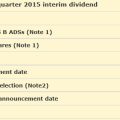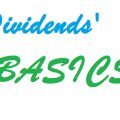What Is An ETF? How To Invest In Exchange Traded Funds (Infographic)
ETFs are really popular financial instruments nowadays. But what is an ETF and what’s the big deal about investing in such? ETF is an abbreviation of Exchange Traded Funds and actually is an investment company, that collects money by selling shares to the broad public and invests the collected money in different assets like shares of other public companies, commodities, and all other kinds of assets. This way people, who have shares in such a fund get their money managed professionally and without their participation. They are just like mutual funds, except that they are traded on a regulated stock exchange, like The New York Stock Exchange. Each ETF tracks/invests a certain asset or a group of assets, this makes these funds instruments for investing in these assets.
There are different types of ETFs. Some of them track a stock index like SP500 or Dow 30 index. These funds buy all the components (stocks) of the index, in the same proportion in which they are used to calculate its value. This is how you get a fund that changes in price just like the index. As you may know, you can’t directly invest in SP 500, but a good way to do that is by buying a share of an ETF fund, that tracks it. Because of the fact that ETFs are passively managed, their performance depends on the performance of the assets they follow, not on the performance of the management. This actually minimizes the risk of choosing a poorly managed fund.
ETFs may follow any other asset or security. For example, there are commodity ETFs investing in gold, copper, and other metals; there are such funds buying bonds, estates, and other assets. Currently, a bitcoin ETF is opening, that will allow people to invest in the innovative cryptocurrency. The site www.etf.com is a place, where you can find a big collection of different types of such funds, read detailed information about each of them, and get a better idea of what they are. It’s a really nice ETF screener.
What’s The Big Deal about Investing In An ETF?
So, what’s the deal? These funds have some big advantages:
* Your money is managed by highly skilled professionals – if you don’t know much about investing, this might be a good reason for you to invest in such a fund.
* Low investment expenses – ETFs are managed passively. This means that their managers buy something and just hold it. No active trading is involved. This way the number of fees paid by the fund is minimized. The yearly expenses of an ETF are around 0.55% of the assets, while the average expenses of a mutual fund are more than double, around 1.23% (numbers are based on research made by Morningstar). Some index funds have annual expenses from as low as 0.2% of the assets, which is cool.
* You can invest in assets unavailable for direct investing – for example, you want to invest in stocks from Africa. How do you do this? You have to research well all brokers that offer African shares, you should get familiar with the business climate in Africa, you should make a thorough research on the companies, and so on… In a few words you have to do a lot of work and if you are not very well with financials and economics it will be a pain in the butt for you. A really simpler alternative for you is to buy ETF shares of a fund that invests in Africa and save all the struggle. Or imagine that you want to heavily invest in gold… You can’t keep 20 kilos of precious metal at home, can you?
* You can save taxes – you pay taxes only for the profits you realize, when you sell your ETF shares. This way you can literally avoid taxing your profits forever or decide when is the best moment you want to pay them.
What Are ETFs? Infographic
Investing in ETFs
Exchange Traded Funds (ETFs) have become increasingly popular over the past decade, in part due to their low cost, diversification, and relative ease of use. ETFs invest in a wide range of securities, such as stocks, bonds, and commodities, and offer exposure to a variety of markets and investment strategies. While ETFs have certain advantages over traditional mutual funds, they also come with their own set of risks. Investing in ETFs can be a great option for those looking to diversify their portfolios, but it is important to understand the basics of ETFs before getting started.
Advantages of ETF Investing
ETFs have certain advantages over traditional mutual funds. ETFs typically have lower fees, offer flexibility and tax efficiency, and can provide investors with exposure to a much wider array of markets and investment strategies. ETFs also provide instant diversification, allowing investors to gain exposure to multiple stocks, bonds, commodities, and other securities at once. Furthermore, since ETFs are traded on exchanges, they can be traded easily, quickly, and at any time.
Risks of ETF Investing
Although ETFs offer many advantages over traditional mutual funds, it is important to understand the risks associated with investing in ETFs. ETFs are subject to market risk and may be more volatile than investing in individual securities or other investment options. In addition, the prices of ETFs can be affected by factors such as the overall market performance, factors related to the underlying securities, as well as macroeconomic factors.
How to Invest in ETFs
Before investing in ETFs, it is important to understand the risks associated with them and make sure that they fit into your overall investment strategy. Investors can buy and sell ETFs either through a brokerage account, directly from the issuer, or through a digital platform such as an online exchange. Investors should also familiarize themselves with the fees associated with ETFs, which can vary widely depending on the type of ETF and the issuer. It is also important to do your research when investing in ETFs, as there are many different types of ETFs available, each with different objectives, risks, and fees. It is important to understand the underlying assets of the ETFs you are considering investing in and to make sure that they meet your goals and risk tolerance.
In conclusion, ETFs offer many advantages to investors, including low costs, diversification, and easy access to a variety of markets and investment strategies. While ETFs can be a great option for many investors, it is important to be aware of the risks associated with investing in ETFs. Before getting started, investors should ensure that the ETFs they are considering fit their investment goals and understand the fees associated with them. By doing so, ETFs can be a great long–term investment option for many investors.
We hope this article gave you a basic idea about what these funds are and how they work. Don’t miss checking out some more of our cool posts on investing. Don’t be ashamed to share some with friends on your favorite social site. Thanks!









